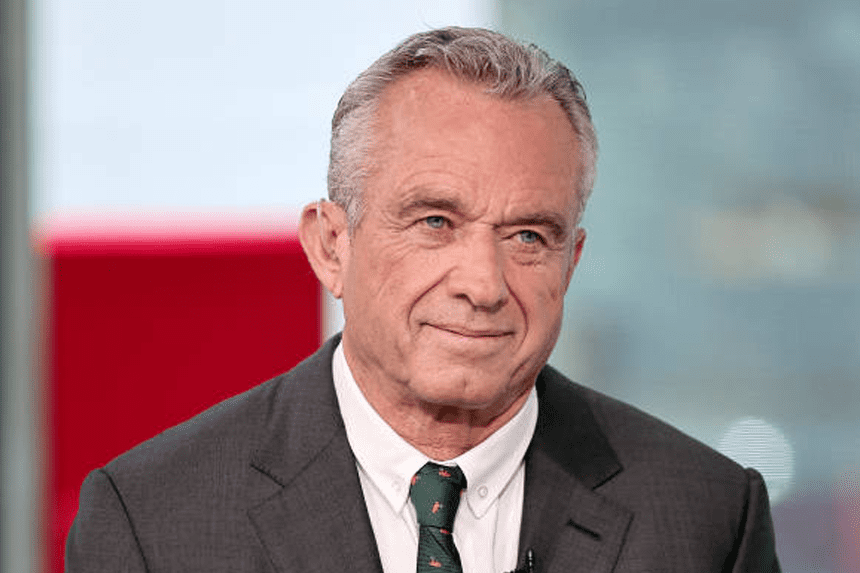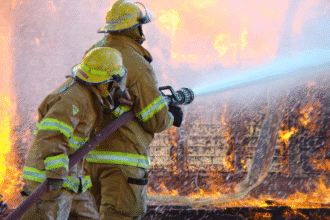Recent changes by Health Secretary Robert F. Kennedy Jr. to the U.S. vaccination advisory group have sparked national debate. Kennedy wants public confidence in vaccination policy rebuilt by excluding all 17 past members and selecting a fresh slate of advisers. While some say the action could compromise scientific agreement, supporters contend it is a big step toward openness. All eyes are on how the newly established committee will formulate vaccine recommendations as it gets ready for its first big meeting. This upheaval represents a turning point in the continuous discussion over vaccine control.
- Why did RFK Jr. shoot the whole ACIP panel?
- Comprising the new wave of vaccination advisers are who?
- The appointees provide what scientific and policy expertise?
- What debates have started in reaction to the overhaul?
- How much does ACIP influence vaccination policy?
- Might this redesign affect the availability and cost of vaccines?
- Does the upheaval point to public health becoming politicized?
- How does Kennedy defend the committee transformation?
- About scientific rigor, what questions surface?
- How might this influence forthcoming vaccination policies?
- Which systems of control are in action?
- What should the public anticipate going forward?
- What more general consequences follow for democratic government?
Why did RFK Jr. shoot the whole ACIP panel?
On June 9, 2025, U.S. Health Secretary Robert F. Kennedy Jr. announced a radical overhaul whereby he eliminated all 17 members of the Advisory Committee on Immunization Practices (ACIP). Kennedy said in justifying his choice that he was driven by continuous worries about conflicts of interest and presented the committee as having evolved “little more than a rubber stamp for any vaccination.” This change, he said, was a required first step toward “restoring public trust in vaccines.” Furthermore, he pointed out that timing was critical: if these members stayed, reforms would not show up until 2028. His quick response helped him to position himself to guide the committee’s destiny.
Comprising the new wave of vaccination advisers are who?
Two days later, Kennedy revealed eight additional vaccine advisers: Joseph R. Hibbeln, Martin Kulldorff, Retsef Levi, Robert W. Malone, Cody Meissner, James Pagano, Vicky Pebsworth, and Michael A. Ross. From public-health academics to doctors, this group comprises people with a variety of backgrounds, though some are well-known for their critical opinions on conventional vaccine science. Especially, Dr. Malone had caused controversy by advocating theories on mRNA vaccination hazards during the epidemic, and Dr. Kulldorff openly attacked COVID regulations. Kennedy justified his decisions by characterizing the newly formed committee as a team of “highly credentialized scientists… committed to evidence‑based medicine, gold‑standard science, and common sense.”
The appointees provide what scientific and policy expertise?
Only Dr. Cody Meissner of the eight has experience sitting on federal vaccine advisory groups. Others, like Martin Kulldorff and Vicky Pebsworth, provide experience from litigation or campaigning connected with vaccination safety issues. While some individuals are well-known for questioning the received wisdom on vaccinations, others have scholarly qualifications and strong research skills. While some see this variety as politicizing, others contend that it guarantees a more thorough fact-checking procedure. Kennedy underlined that before advancing any vaccination advice, these advisers will seek clear safety and efficacy data.
What debates have started in reaction to the overhaul?
The restructuring set off strong responses from the public health community. Major medical groups warned that speed by itself does not build trust and criticized the procedure as sudden and opaque. Former leaders of vaccination committees expressed serious worries, labeling the reconstitution as a “disaster for public health” and foresaw it could compromise the implementation of current immunization programs as well as future ones. Critics also expressed concerns about how reliance on ACIP guidelines shapes insurance coverage and school-entry vaccine requirements, therefore exposing millions perhaps exposed to policy changes or delays.
How much does ACIP influence vaccination policy?
Leading advisory organization for vaccination recommendations in the United States, the ACIP serves ACIP decides which populations will get immunizations and on what timetable once the FDA approves. These suggestions directly affect insurance coverage under government laws such as the Vaccines for Children program and the Affordable Care Act. Should ACIP recommend against a vaccination, patients could have to pay for it out of pocket, or the vaccination might not be administered at all. Any change in committee membership has major ramifications for policy, cost, and preventive care since ACIP rulings usually guide public health initiatives.
Might this redesign affect the availability and cost of vaccines?
Reevaluating or changing vaccination recommendations could, according to experts, result in access restrictions or cost increases. Should a previously advised vaccination be eliminated or slowed, pricing changes could follow, therefore affecting public and personal health expenditures. For pediatric vaccines, where market forces already affect pricing and availability, this risk is particularly great. Critics warn that implementation may stop if the new panel voices doubts or imposes stricter certification standards, therefore possibly leaving groups vulnerable during important seasons like fall and winter.
Does the upheaval point to public health becoming politicized?
The extent and scope of the makeover raise serious concerns regarding the moral foundation of vaccination policy development. Critics contend that officials with dubious opinions about vaccines could bring ideological prejudice. Some are concerned that the phrase “evidence-based” is being employed selectively, therefore compromising more general scientific agreement. Legal and scholarly experts warn that mixing political viewpoints with scientific control could erode public confidence and future decision-making structures.
How does Kennedy defend the committee transformation?
Kennedy argues that past ACIP members placed trust at risk by being overly closely associated with pharmaceutical interests. He underlined that the new advisers on vaccines are dedicated to seeking strong, open data. In his speech, he underlined that rather than weakening confidence, this rebuilding is a fundamental first step toward restoring it. He presented the elimination of long-term members as a corrective action meant to restore confidence and confirm independence from corporate interference. Here is the link to our article on Humanitarian Vaccination Efforts
About scientific rigor, what questions surface?
Critics of the new appointments note that numerous people have not formally studied immunization policy or vaccine safety review. Some have fringe or controversial opinions that might not fit accepted scientific practices. This mix of creativity and mistrust results in uncertainty: it can postpone agreement or obscure public messaging even while it could generate fresh ideas. Scientists caution that rather than ideological doubt, scientific judgment should rely on peer-reviewed evidence and set standards.
How might this influence forthcoming vaccination policies?
There is no more crucial timing than this. Late June is ACIP’s next meeting; on the agenda are vaccinations against COVID-19, RSV, and influenza. A more dubious committee would probe efficacy data or safety signals—oval if justified, delays or changes in official recommendations could have consequences for public health systems. Flu season changes could particularly impact vulnerable groups like children under five and older persons. Tracking this conference will expose how the new panel influences vaccination policy.
Which systems of control are in action?
Already attracting interest is congressional supervision. Major medical groups, including the American Medical Association and the American College of Physicians, have demanded hearings to go over conflicts, openness, and the integrity of the selection process. Some legislators might propose laws or resolutions mandating increased openness on the choices for advisory panels. Civil and legal groups are investigating whether the nominations satisfy ethical and administrative requirements, including open-meetings rules and conflict-of-interest policies.
What should the public anticipate going forward?
Several significant events should materialize in the next weeks. The results of the forthcoming ACIP meeting in June will shed light on how the recently established group manages the vaccination schedule and more general public health recommendations. Concurrent with this are congressional hearings to assess whether reforms are required and whether the recent advisory appointments followed correct procedures. Health officials will also closely track vaccination rates, especially for flu, RSV, and COVID-19, to see how changes in advice might affect public reaction. Legal and regulatory authorities also probably check the appointment process to make sure that the accepted criteria of openness and protocol are followed.
What more general consequences follow for democratic government?
The committee shuffle highlights a more general issue: how should science and government collaborate to implement health policies? As vaccine advisers take center stage in this debate, Americans are being forced to consider whether knowledge should be apolitical or if doubt and responsibility ought to coexist. Trust in institutions depends on guaranteeing strong procedures, openness, and honest investigation as public health strategy gets ever more linked with political dynamics. This event might change the way vaccine advisers and other expert bodies are put together and how their activities either promote or compromise public confidence.








